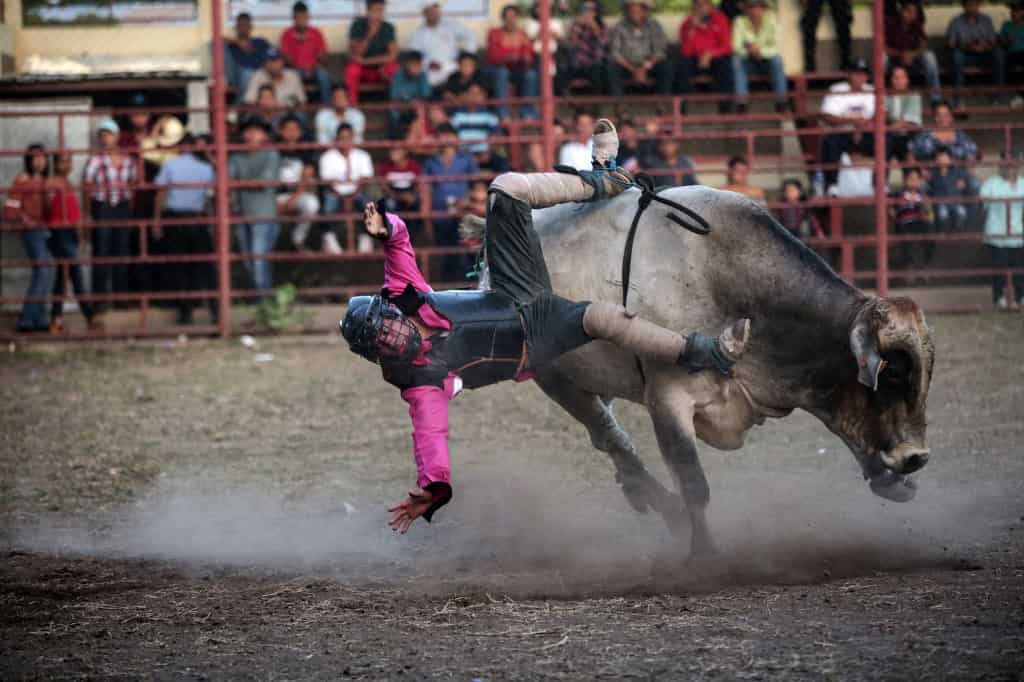When Eveling Perez was a teenager, she became fascinated by bull riding but her brother told her it was only for men in Nicaragua, where machismo was and still is the norm.
She ignored him. Now the 33-year-old cook takes part in rodeo shows, riding a bucking bull. Perez earns $200 every time she mounts one, her right hand gripping the animal’s harness while her left arm is stretched out for balance.
Hundreds of spectators at a festival in Tipitapa, around 30 kilometers (20 miles) from the capital Managua, cheer and applaud as her body shudders with the violent bucking of a beast that weighs hundreds of kilograms and is desperate to shake her off.
The goal is to stay on the bull for at least eight seconds.
That is no tall order for the 1m60cm (5 foot 3) Perez, who trains regularly, including daily two-kilometer runs to stay in form. But the nature of the sport means she suffers frequent injuries, even bone fractures.
As unusual as it is to see women taking part in the hugely popular rodeos in Nicaragua, Perez is not the only one on her team. And she hopes that one day, women bull riders will no longer be so rare.
“I would like that not just myself and my teammate, but that many more women take part to represent the feminine sex,” said Perez. There are some obstacles to women’s participation, though, as bull riders agree they are at a physical disadvantage.
“Of course, it’s more difficult for a woman,” said Carlos Conde, one of Perez’s male teammates. However, he insisted women can make up for a lack of speed and strength through bravery.
Perez acknowledges she could never squeeze the bull with her legs as much as a man, whose limbs are often longer and more powerful. She also said men have greater flexibility, “but we women try to do it because it’s unusual to see a woman riding a bull, but it’s possible.”
Marvin Bolanos, from the rodeo riders’ association, says there are ever more women taking part — not just in bull riding but all sorts of activities previously reserved for men.
And whereas once there was resistance from some macho egos trying to protect their monopoly on bull riding, attitudes are slowly changing.
“You can’t be macho. You have to let women” ride bulls, said Francisco Orozco, who owns a dozen of the rodeo animals.






